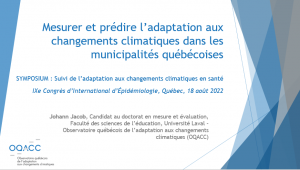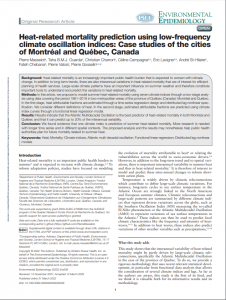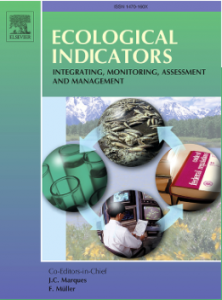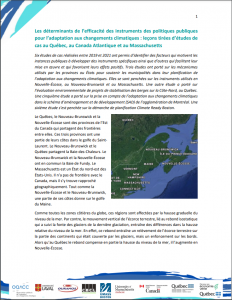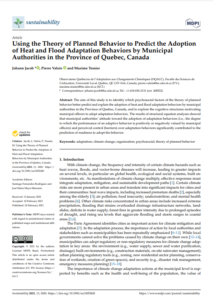As the literature on heat tolerance suggests that the elderly are generally more heat-intolerant and suffer more from the substantial impacts of excessive heat on human health, exacerbated by their higher rate of chronic diseases, it is important to learn how to better protect this vulnerable population. Moreover, many studies have shown that, despite their vulnerability, the elderly do not necessarily perceive themselves as being at risk or see heat waves as a danger to their health. This lower risk perception could hinder their adoption of adaptive behavior.
This study aimed at developing a more thorough understanding of what motivates older people from the province of Quebec, Canada, to adopt pro-adaptive behaviors to protect themselves from the heat, to better predict and explain their self-reported heat adaptation behaviors, and to identify their most important beliefs.
In this study, a telephone sample of 1002 persons was used to explore the decision-making process of seniors in a way that led us to illustrate specific variables that could be targeted for awareness raising. All three variables of the theory of planned behavior (i.e., attitude, perceived social pressure, and perceived behavioral control) had a statistically significant impact on intention to adapt, while intention itself was linked to adoption of adaptive behaviors.
